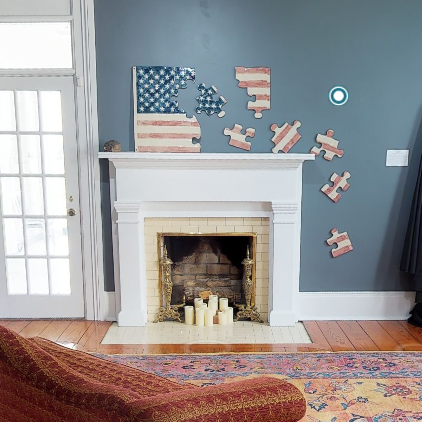
This post is an original article written by Timothy Wienecke. Tim is a United States Air Force veteran and clinical mental health counselor practicing in Golden, Colorado. He has specialized in supporting veterans transitioning to higher education after the military through his work as a facilitator for the Peer Advisers for Veteran Education (PAVE) program at the University of Colorado at Denver.
After three years of helping over a thousand veterans get into and through college, I can say with some authority that transitions are rough. Here are the five things you can do before starting college after separating from the military that will make it easier on yourself.
1. It all starts with a goal
Before you even look at colleges, have a reason you want to go to college. For a lot of veterans, it’s the financial security that the GI bill provides. That security can be your top reason for going back to school, just make sure it’s not your only one. Getting your rent paid sounds like it will keep you motivated enough to pass your courses, but that isn’t always true. College can be a pain; younger peers, busy work, and minimal direction from professors are just a few of the things likely to drive you up a wall. You’ll need a better reason than a check to keep studying, and there is no sense in wasting your time and money.
Your goal doesn’t need to be a specific degree or career path right away. It is reasonable to have your goal be the space and support to find new purpose. More than anything else, not having a purpose is the main thing folks returning to civilian life struggle with. Good universities have great programs through their career, counseling, and veteran centers. Those centers are often underutilized and excited to see you come through their door. Many universities charge upwards of $5,000 per semester, make sure to use what you’re paying for. Find a college with services to meet your goals, whatever those are.
2. Location, location, location…
Several times a semester, when I ask the new folks why they picked Denver, they tell me it’s because they heard it’s nice here. They don’t know anyone, the town, or have a job lined up. They just want a solid place to make a fresh start in.
In the military, we learn to be good at moving, because we were in a system designed around members shuffling around every few years. The difference now is you will not have a unit that’s expecting you. More and more universities have a veterans’ groups and spaces, but it’s not going to be like showing up to a unit with traditions, structures, and ranks with which you’re already familiar with while you get settled.
You’re better off finding somewhere you know someone; family, friends, or someone you served with. Anyone that can show you the town and help you get settled in. A good program is great, but you still have to live in the city it’s in. The more people you care about around you, the better it’s going to go.
Starting somewhere with no ties to a place is going to make your transition harder. That doesn’t mean it’s not worth doing, it just means your plan will have to address it if you want to be successful.
If your goals are not going to be supported by moving where you know folks, make sure you get lined up with a community as soon as you can. The VFW, a student veterans’ group, church, a volunteer cause… it doesn’t matter as long as it’s a group you have something in common with. You learned in the military that being connected to solid people will carry you further than anything else, that lesson holds true anywhere you go.
3. Make sure the college has what you need.
Every college you look into will have one goal, to get you enrolled and take your money. That means they will try to sell you on their programs. This doesn’t make them horrible or amoral; it means like every other business; they have an agenda. Listen to their pitch, look at their material, but also ask around. You know you want to become an engineer? Find a hiring manager for an engineering firm you’d like to work for and ask them what programs they tend to recruit from. Regardless of the career path, your program’s creditability is key. A university might have a great business program with lots of community connections, but it usually means their behavioral health program has a limited budget and minimal support. A little investigation and leg work can go a long way.
If your focus is on finding the right career path, make sure to look into the services the college provides. Not all campus services are great. Just like the military, good work is driven by good people. Look up reviews, ask some people that are in the program. Google the school’s graduation rate and job placement numbers. Most colleges with high rates of job placement achieve those numbers by graduating students who know what they want and have help getting it.
I also consistently find student veteran’s offices are more about helping the veteran than giving the university’s line. That means they’re more likely to give you solid information about their college’s programs. Call them and have a conversation. If a college does not have veteran services with full time staff, look elsewhere. There is a lot of funding available for veteran programing, so if a university does not have one, it’s likely that their focus isn’t going to be on you.
4. Money – the struggle is real.
You’ve got your goal, you’ve found a place to call home, and found the program you want. Now you’ve got to find the tens of thousands of dollars the next few years are going to cost you.
Most folks getting out tap their GI Bill to cover tuition and rent, which is great. What a lot of people don’t realize is that it only covers 36 months of education and will only pay up to the highest state college’s tuition for the state you are in. It also only pays BAH when the semester is actually in session, so summer and winter breaks aren’t covered. Between them, there will usually be a month or two a year with no check.
Plan accordingly. If you get into a great private college, there are grants and aid that can cover what the GI Bill doesn’t. This is also true for programs that take longer than three years. The veteran services and financial aid office will be a good starting point, but will require work on your end. It’s a frustrating process to chase down funding. Just like the military finance office, it’s an unclear bureaucracy that you’ll need to navigate to get to thousands of dollars. Get help, put in the time, and you’ll be able to get the money and financial planning you need to walk away with a degree and without thousands of dollars in student loan dept.
5. NCO to Freshman can be rough. You may not walk on to a top 10 school
If you were an academic rock star during your service, acing classes and knocking out college courses, you’ll likely have your pick of colleges. For others, it is rightly going to take some time to establish our credibility as a student.
Do not be afraid to start at a community college if it supports your goal. Let’s say you want to be a nurse, but haven’t taken a biology course in four years and never took the ACT. The best nursing schools may not take you fresh out of the service. There are other ways in, most programs have good relationships with local community colleges. Find out which community college has a feeder program for the college and start there. Community colleges are often better at serving older students with diverse backgrounds, which includes most of us. There is no shame in working your way up, a lot us start there to get into the careers we love.
Just remember to have a goal you’re working towards, be somewhere with people you care about, do your research before spending your effort, and pick a solid program to get you rolling. All that’s left is a lot of hard work, time, and the never ending changes life throws at you. You’ve got it.
Did you enjoy this post? Please comment below and share with your network in order to join the conversation regarding veteran mental health. You can sign up for updates from Head Space and Timing and follow Tim on LinkedIn and find more information on his website, Empowered Change: Counseling & Education P.C.



1 Comment
HST 015: Veterans and Higher Education with Timothy Wienecke — Head Space and Timing · October 17, 2017 at 4:17 am
[…] The Veteran Scholar: 5 Things to Look At When Choosing a College […]
Comments are closed.